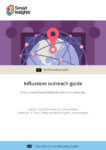Chart of the Week: The majority of marketers find influencer marketing to be an effective strategy, but it doesn’t come without its challenges
Influencer marketing has become a popular tactic for a number of brands, whether they’re using well-known names or micro-influencers. In fact, according to new research from Mediakix, 80% of marketers find influencer marketing to be an effective strategy.
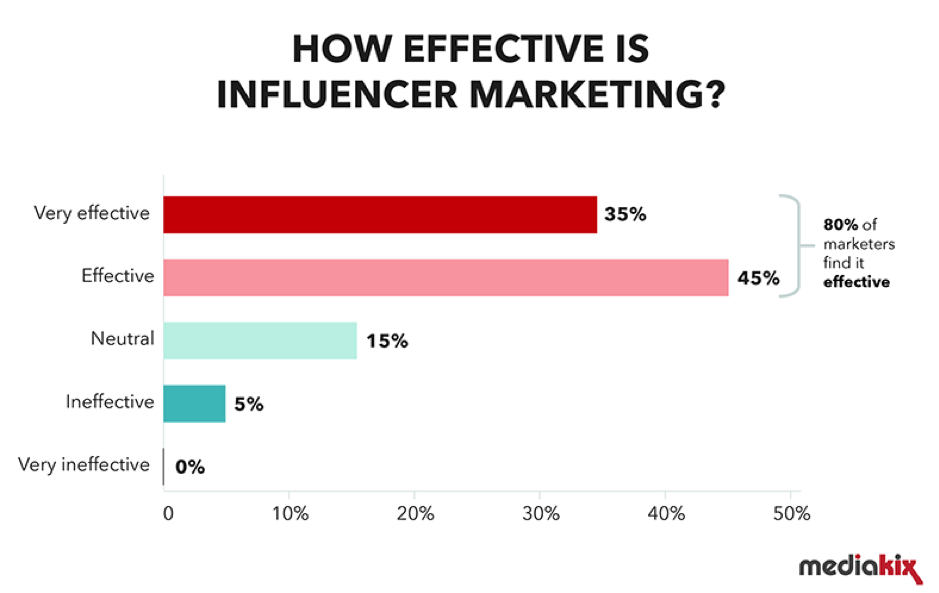
Almost half of marketers (45%) said they find influencer marketing effective, with a further 35% saying they find it very effective. In comparison, only 5% said influencer marketing was an ineffective tactic, while15% were neutral on the topic.
This suggests that getting your influencer marketing campaign right - finding the right people to work with, promoting the best products or services and having them share content across channels that suit your audience – can help you achieve good results.
Download our Individual Member Resource – Influencer outreach guide for marketing professionals
This practical guide shows you how to use tools to find and interact with influencers on the best social media platforms for outreach, that’s Twitter, LinkedIn, Facebook and more.
Access the Influencer outreach guide for marketing professionals
Drive quality traffic
Influencers help to drive awareness, create brand advocates and can boost sales – especially if your strategy includes unique discount vouchers for each influencer to promote alongside your products. A total of 71% of marketers agree that the quality of customers and traffic is better from influencer marketing compared to other sources, showing that influencers can boost conversion.
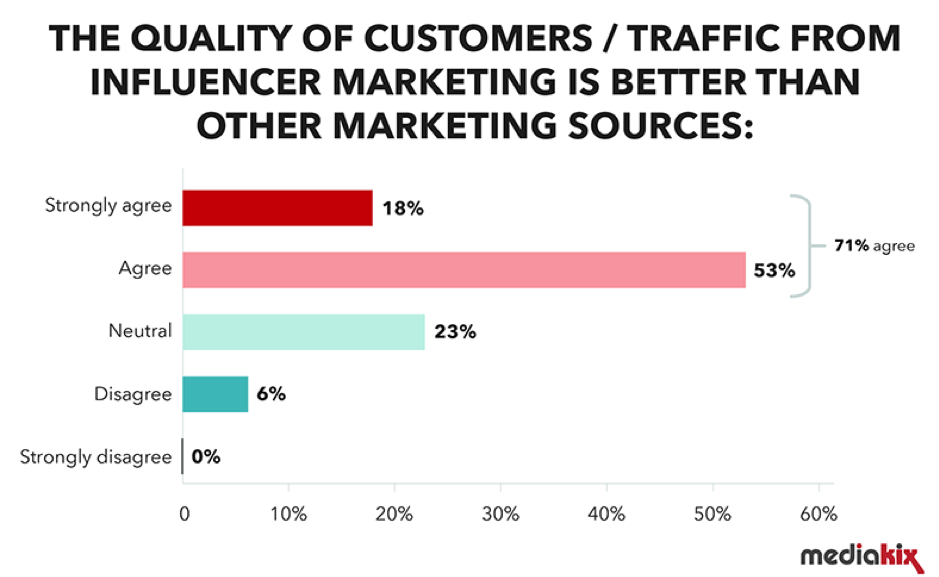
When it comes to traffic that has been referred by an influencer, there is a strong likelihood that users land on your site with the intent to purchase. Individuals have seen a social media post or read a blog that highlights the benefits of your product and is promoted by someone they trust. They will either click through to your site to further research a product/service or to buy it.
On top of this, influencer marketing can help to improve your social media following, with those who aren’t quite ready to purchase but who like the look of your brand more likely to follow you on Facebook or Instagram. This allows you to lead them through a nurture campaign via social media, increasing the chances of conversion down the line.
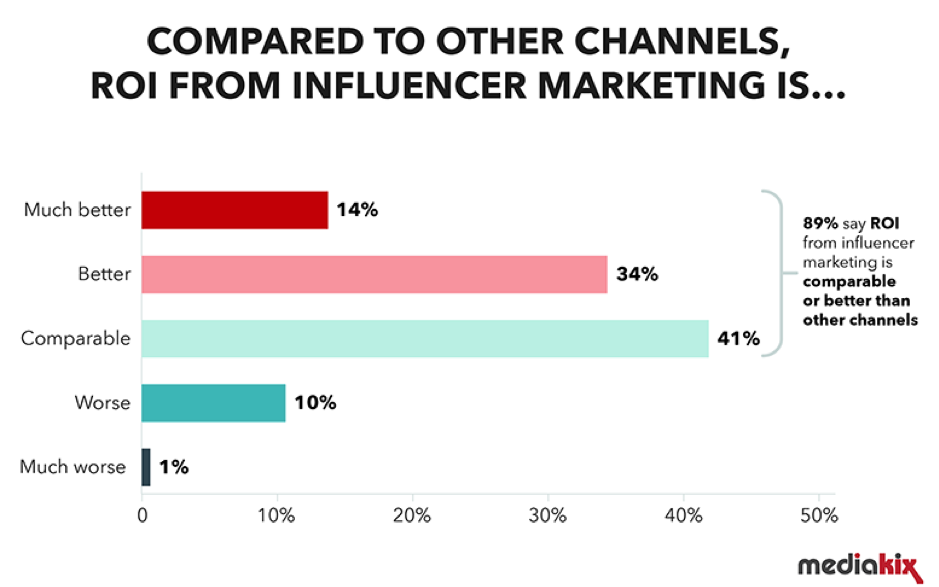
ROI is comparable or better
A total of 89% say that influencer marketing offers ROI that is comparable or better than other marketing channels. Broken down, 41% of marketers said that influencer marketing ROI is comparable, while over a third (34%) said it is better. A total of 14% said that it is much better than other marketing channels,
In fact, only 10% said it is worse and a small 1% said it is much worse. The fact that these figures are so small compared to those marketers who are happy with the ROI of influencer marketing could be due to individual campaigns not quite hitting the mark.
Failing to plan and implement your influencer campaign correctly – as with any other marketing channel – could mean that you don’t see the best return on investment. Choosing the wrong influencers, showcasing the wrong product or failing to target the right audience can all leave you feeling like influencer marketing doesn’t work.
Budgets are growing in 2019
The success of influencer marketing for the majority of marketers means that budgets for this type of campaign are set to rise. Last year saw 39% of marketers say they were planning on increasing influencer marketing budgets for 2018. In comparison, 65% are now planning on increasing this budget for 2019.
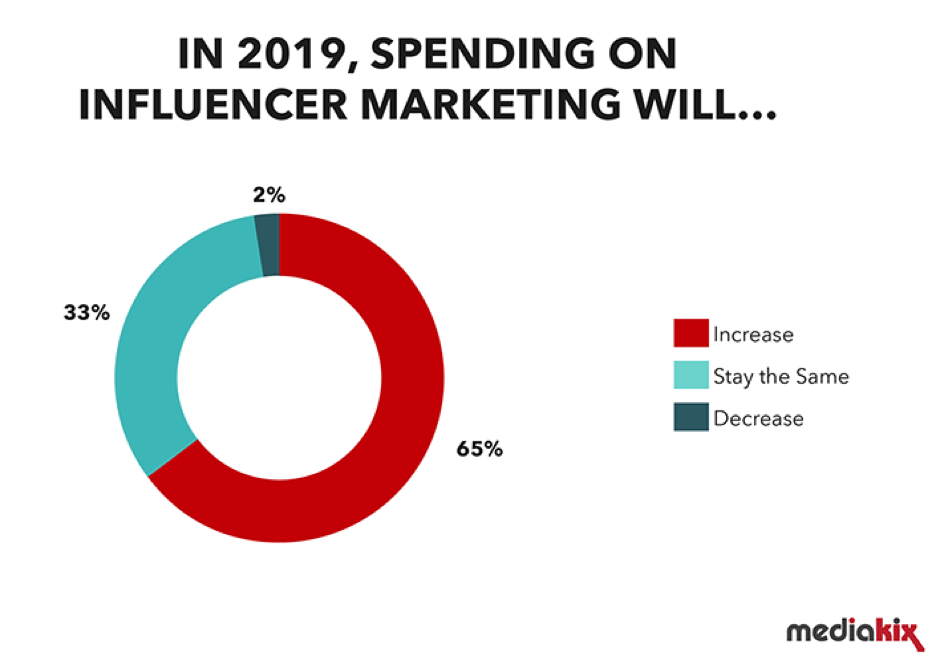
Only a third (33%) of marketers are planning on keeping their budgets for influencer marketing campaigns the same this year, with almost double this putting more money into this type of marketing. This suggests that more companies could be making the most of this form of marketing this year.
When looking at who is going to decrease their budgets for influencer marketing, only 2% of respondents said this would be the case. This is despite 11% saying ROI was worse than other marketing channels, suggesting that some brands might be aware of issues that influenced their results and are not allowing these to affect their budgets this year.
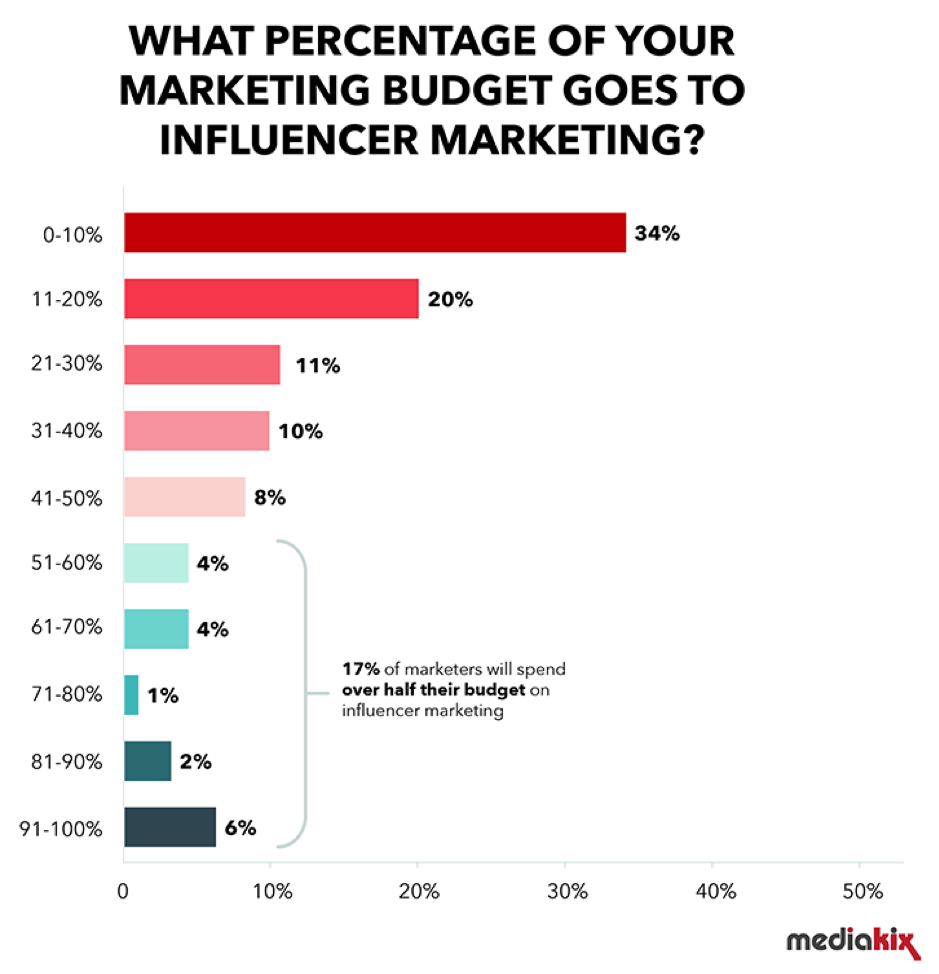
Marketing budget breakdown
The majority of marketers are spending less than 50% of their marketing budget on influencer marketing campaigns, with just over a third (34%) saying they will be spending between zero and 10% of their budget on this channel. Around 20% will spend between 11% and 20% of 2019’s marketing budget on influencer marketing.
However, 17% of marketers are set to spend over half of their full marketing budget on influencer marketing this year. Of this, 6% spend between 91% and 100% of the budget on influencer marketing, which goes to show how effective it can be for some brands.
Instagram is best for influencers
In terms of channels for influencer marketing, Instagram is the most popular. Thephoto-sharingg social media platform has gone from strength to strength and the addition of new features – including stories and shoppable posts – means it is much easier to showcase products and encourage conversion.
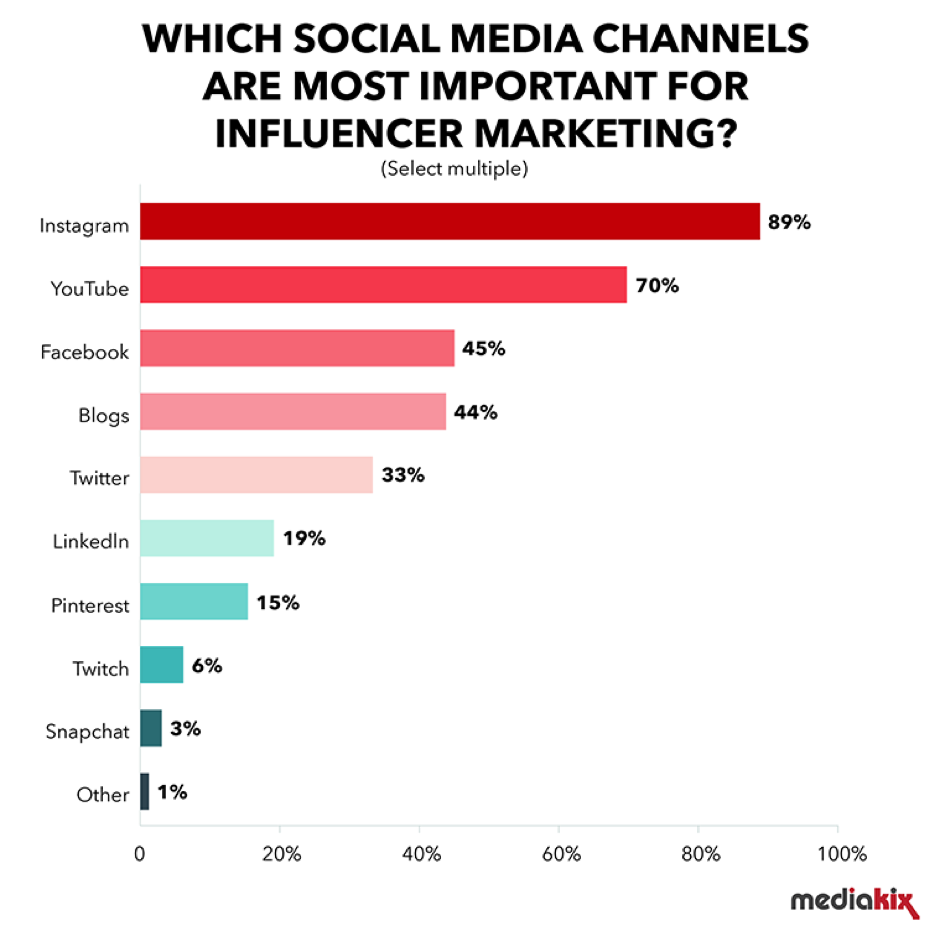
Some 89% of marketers said that Instagram is the most important channel for influencer marketing, with the option to post photos, albums, videos and stories likely benefitting many brands. Around 69% of marketers intend on spending most of their budget on Instagram in 2019, cementing it as the most powerful social media platform of the moment.
YouTube is the second most important platform, with 70% of marketers choosing it. This is possibly due to the fact that videos are a lot more engaging than static content and are an effective way of showing a product and its benefits in full.
After YouTube is Facebook (45%) and blogs (44%), showing a fairly big drop in the percentage of marketers who see these as being important compared to Instagram. Although Facebook is used by many on a daily basis, it can now be more difficult for pages to be seen by followers, meaning ROI may not be as strong on this platform.
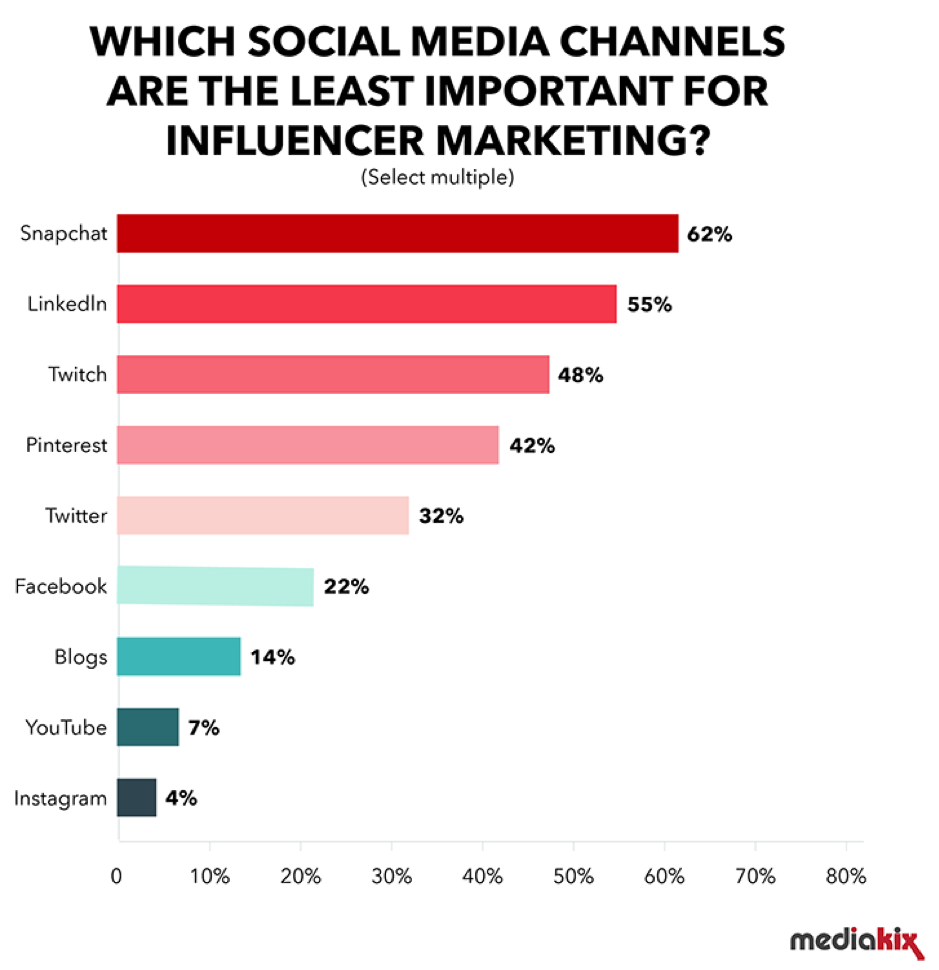
At the bottom of the table when it comes to importance for influencer marketing is LinkedIn, Pinterest, Twitch and Snapchat, all of which aren’t really made for this type of marketing. In fact, Snapchat is highlighted as being the least important platform for influencer marketing by 62% of marketers, showing that Instagram stories has managed to eclipse it.
Finding the right influencer
One of the biggest challenges for marketers when it comes to influencer marketing is finding the right influencers for a campaign. Some 61% of marketers agree that finding the best influencers for a campaign is a big challenge, compared to just 39% who disagree with this.
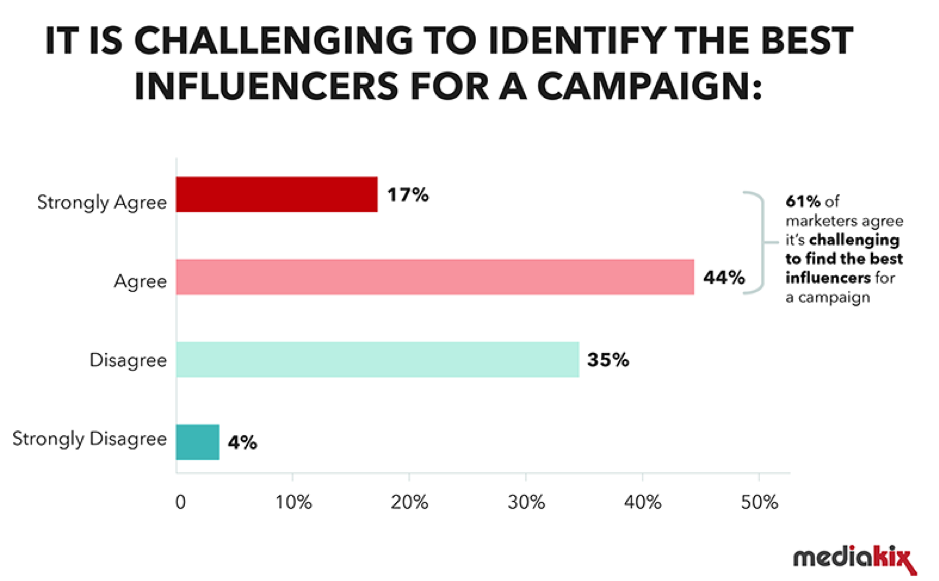
While influencer marketing can be beneficial, it only really works if you can match the influencer to your target audience and your overall campaign goals. Failing to do this can limit the effect that your campaign has, reduce the quality of the traffic that comes from the campaign and affect your ROI. This is likely why 17% strongly agree and 44% agree that identifying the best influencer is an issue.
The top three ways marketers find social media influencers are social search (71%), influencer platforms (43%) and having influencers reach out to them (71%). Other options are organic search (40%), referrals from other influencers (32%) or through an agency (25%), which can be fairly costly.
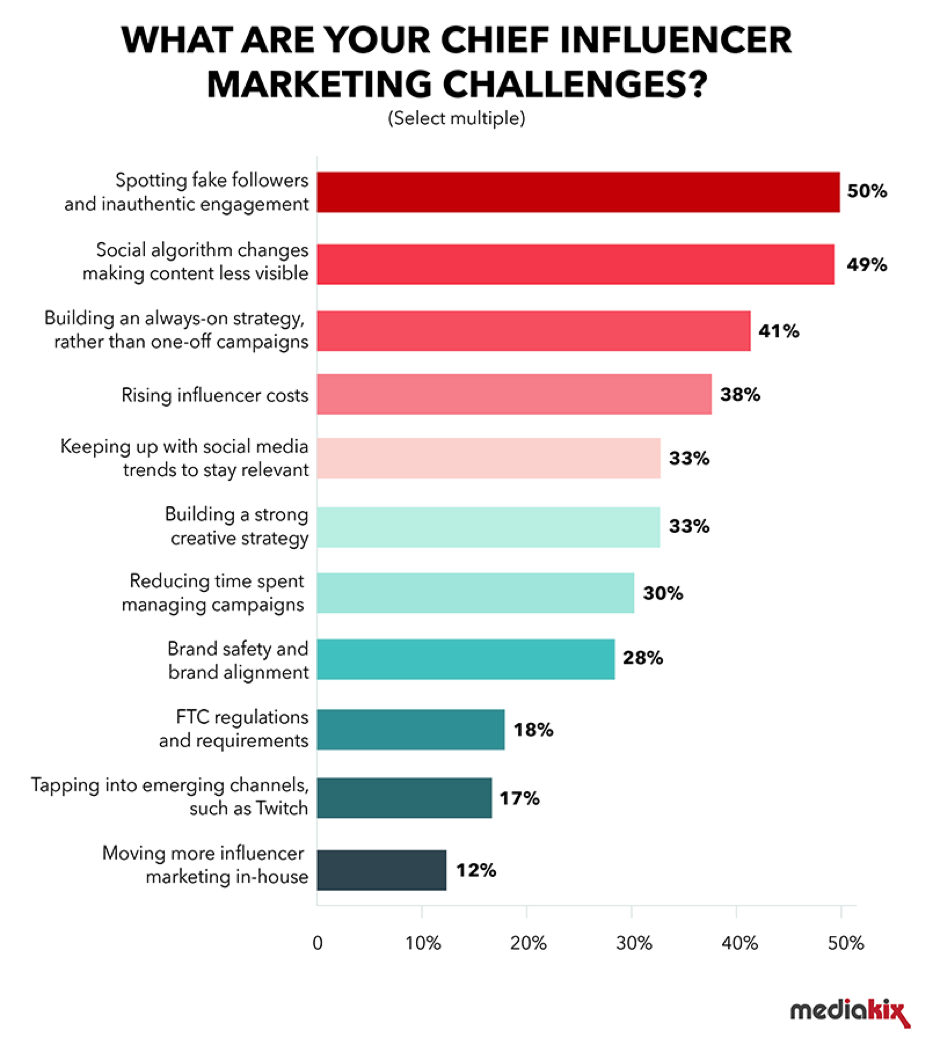
The challenges of influencer marketing
Another big challenge for marketers when it comes to influencer marketing is spotting fake followers and inauthentic engagement. Half (50%) of respondents selected this as a chief challenge, with follower buying services often making social media profiles look more successful than they are.
This was followed closely by changes to social media algorithms that mean content is less visible, which was selected as a challenge by 49%. With changes to platforms, getting influencer content in front of the right people organically can be more problematic.
Another challenge for marketers, as selected by 41% of respondents, is building an always-on strategy rather than just one-off campaigns. Generally, influencers are used to promote certain products at certain times, however, tactics like affiliate marketing can help with the always-on strategies, with influencers getting a share of sales and so they are encouraged to share products more often.
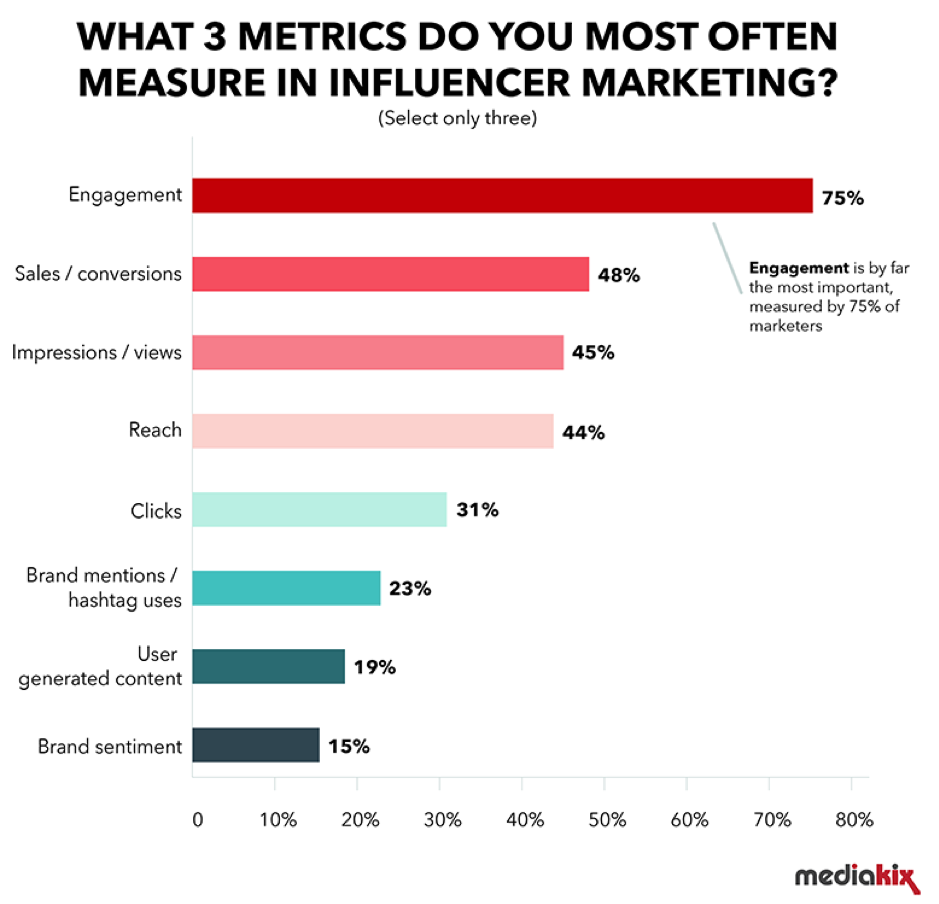
Engagement is the big metric
In terms of metrics, the most often measured one when it comes to influencer marketing is engagement, with 75% saying they measure this. The fact that this comes above sales shows that marketers understand the importance of influencers when it comes to starting a conversion and raising awareness.
There’s a bit of a drop compared to this and the second most important metric, with just 48% saying that sales/conversions are an important measure. While sales are obviously an important part of any marketing campaign, they shouldn’t be treated at the main measure of success when it comes to influencers.
Final thoughts
Influencer marketing is a great way to raise awareness and engage with an audience that wants to hear about your products. It’s also an effective type of marketing when done correctly, helping to grow your following and bring high-quality traffic to your site.
More people seem to trust recommendations from people they follow rather than brands talking about their own products, so tying in an influencer marketing campaign with a strategy that makes use of user-generated content could help improve awareness of your brand and conversion.
However, as with all types of marketing, to get the best of influencer marketing, you need to plan. Ensuring the influencers you select align with your brand, in terms of its values and goals, is the best way to ensure success and see the results you want.




